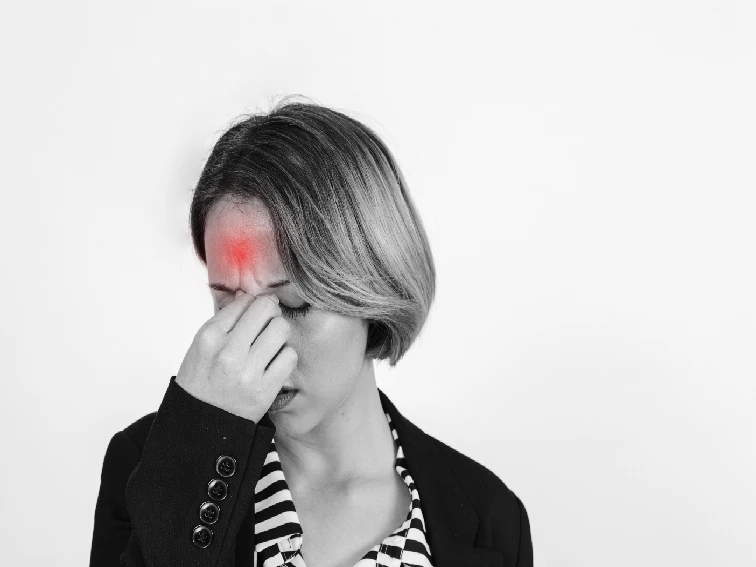Sinus headache triggers and causes
Sinus headaches are due to sinusitis. The most prominent symptoms of sinusitis infection are triggered by allergies or bacterial or viral infections. Sinus headaches can be incredibly debilitating, causing discomfort and disrupting daily life. Seasonal allergies extending for a prolonged period may cause sinus headaches. Hay fever or rhinitis is called seasonal allergies. Sinus blockages or sinus infections can also trigger sinus headaches.
Understanding sinus Headache triggers and causes is crucial for effective management and prevention. Let us explore sinus headaches, what leads to their onset, and how you can find relief.
What Are Sinus Headaches?
These headaches are typically associated with inflammation in the sinus passages, leading to pain and pressure in the forehead, cheeks, and around the eyes. They are often mistaken for migraines (misdiagnosed) due to their similar symptoms.
Symptoms of sinus headaches
- Pain in the forehead, temples
- Pain getting worse on leaning forward
- Fatigue and weakness
- Pressure behind eyes and forehead
- Pain in the cheeks and jaws
- Nasal Congestion, watery eyes, and stuffy nose
- Redness and swelling of cheeks
Sinus Headache triggers and causes
1. Sinus Infections
Sinus infections, also known as sinusitis, are a leading cause of sinus headaches. When the sinus passages become infected, the inflammation can lead to intense pressure and pain.
2. Allergies
Allergic reactions to pollen, dust, pet dander, or other allergens can trigger sinus headaches. The body’s immune response can cause congestion and inflammation in the sinuses.
3. Nasal Polyps
Nasal polyps are growths that develop in the nasal passages. They can obstruct airflow and cause chronic sinusitis, leading to recurrent headaches.
4. Deviated Septum
A deviated septum, a condition where the nasal septum is crooked or off-center, can impede proper sinus drainage, increasing the risk of sinus headaches.
Sinus Headache Triggers and causes
1. Weather Changes
Sudden changes in temperature and humidity can irritate the sinuses, leading to headaches. This is particularly common during seasonal transitions.
2. Irritants and Pollution
Exposure to air pollutants, such as cigarette smoke or smog, can inflame the sinus passages and trigger headaches.
3. Sinus Irrigation
Improper use of nasal irrigation devices, like neti pots, can introduce contaminants into the sinuses, causing irritation and headaches.
4. High Altitudes
Traveling to high-altitude areas can result in changes in air pressure that affect the sinuses, leading to discomfort.
Managing and Preventing Sinus Headaches
1. Stay Hydrated
Proper hydration helps keep mucus thin and promotes healthy sinus function, reducing the risk of headaches.
2. Allergy Management
Identify and manage your allergies through medication or allergen avoidance to prevent allergic reactions that trigger sinus headaches.
3. Humidifiers and Air Purifiers
Using humidifiers and air purifiers can maintain optimal indoor air quality, reducing sinus irritation.
4. Nasal Saline Irrigation
When done correctly, nasal saline irrigation can provide relief by flushing out irritants and promoting sinus health.
FAQs
1. Are sinus headaches the same as migraines?
No, sinus headaches are different from migraines, although they can share some similar symptoms. Sinus headaches are primarily caused by inflammation in the sinus passages, while migraines have various triggers and often involve severe, throbbing pain.
2. Can sinus headaches be chronic?
Yes, sinus headaches can become chronic if the underlying causes, such as sinusitis or allergies, are not effectively managed. Chronic sinus headaches may require long-term treatment.
3. How can I differentiate between a sinus headache and a tension headache?
Sinus headaches often involve pain and pressure in the forehead and cheeks, while tension headaches typically cause a band-like sensation of pressure around the head. Consulting a healthcare professional can help with an accurate diagnosis.
4. Are there natural remedies for sinus headaches?
Yes, some natural remedies, like steam inhalation, warm compresses, and certain herbal supplements, may provide relief from sinus headaches. However, it’s essential to consult a healthcare provider before trying any alternative treatments.
5. When should I seek medical attention for sinus headaches?
If you experience severe or persistent sinus headaches, or if they are accompanied by other concerning symptoms such as fever, visual disturbances, or neurological symptoms, it’s crucial to consult a healthcare professional for a proper evaluation and diagnosis.
Bottom Line
Sinus headaches are a common source of discomfort, but by understanding their causes and triggers, you can take proactive steps to manage and prevent them. Whether it’s addressing underlying infections or making lifestyle adjustments, there are effective ways to find relief from sinus headaches.
By now, you have understood the various causes and triggers of sinus headaches and gained valuable insights into managing and preventing this often painful condition. By taking proactive measures and seeking professional guidance when needed, you can enhance your quality of life and reduce the impact of sinus headaches.
If you experience recurrent or severe sinus headaches, consult a healthcare professional for a thorough evaluation and treatment plan.


